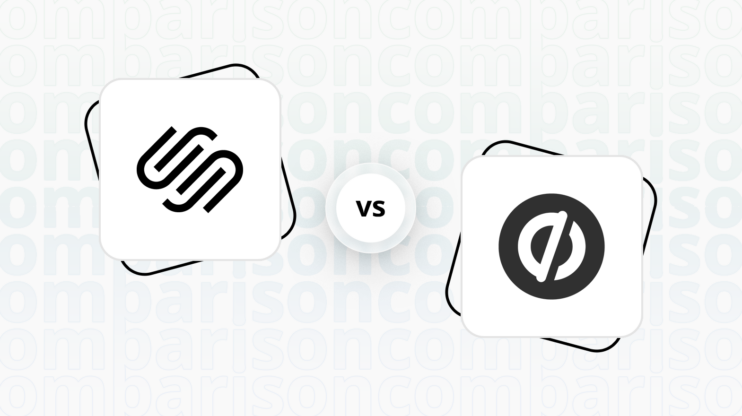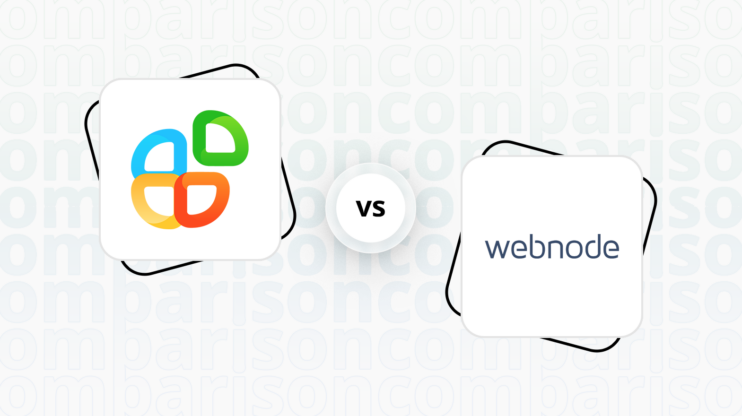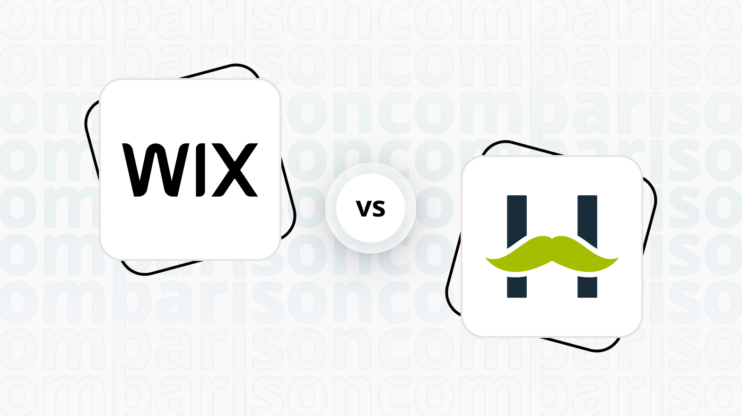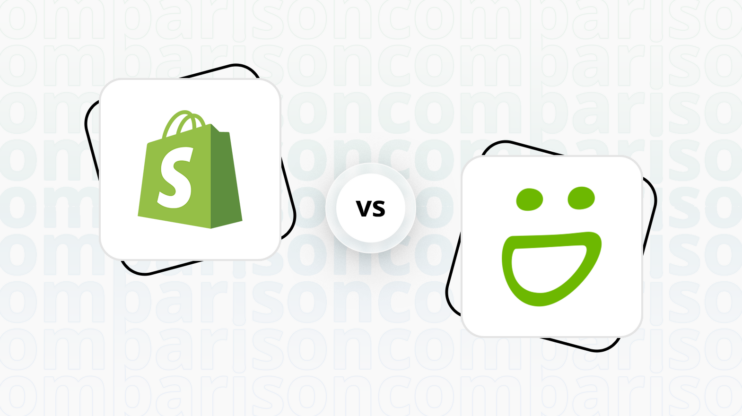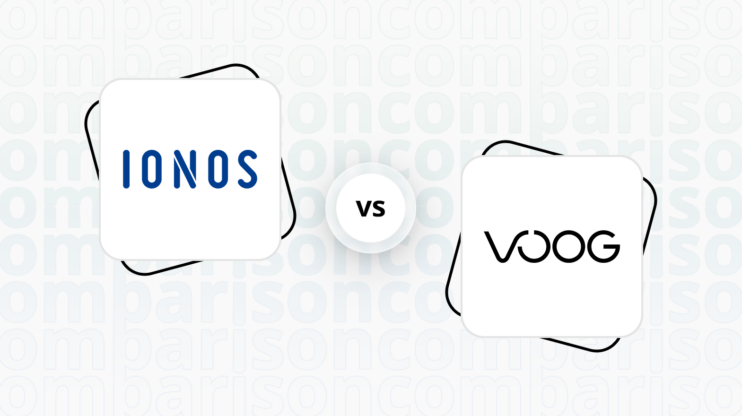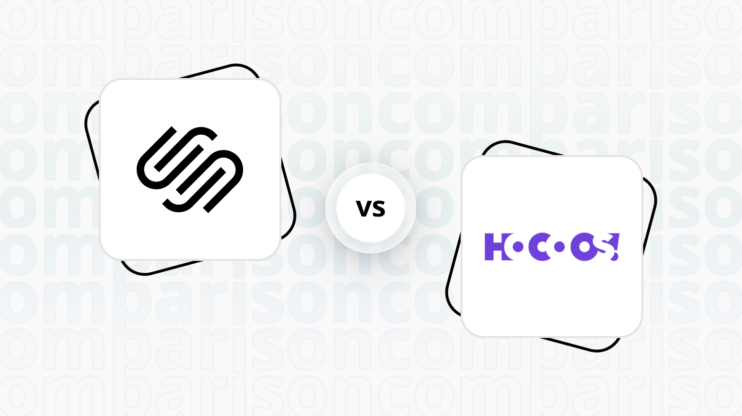Final verdict
Zenfolio and Jimdo both offer unique strengths tailored to different user needs, but Jimdo edges out with a higher overall score.
-
Zenfolio (Overall Grade: 6.4/10)
is a specialized platform designed for photographers and visual artists. It excels in providing elegant, customizable templates and integrated ecommerce capabilities for selling prints and digital downloads. Zenfolio’s focus on photography-specific needs makes it an excellent choice for professionals in this field. However, it has a steeper learning curve and limited versatility outside of photography, which may not appeal to a broader audience. -
Jimdo (Overall Grade: 7.2/10)
stands out for its user-friendly interface and flexibility, making it suitable for a wide range of users, from personal blogs to small businesses. Jimdo offers a diverse range of templates, comprehensive SEO features, and robust ecommerce capabilities without transaction fees. Its AI-driven website builder and ease of use make it an attractive option for beginners and those seeking a straightforward website creation process. When comparing Zenfolio vs Jimdo, Jimdo’s broader appeal and higher scores in ease of use, hosting quality, and security make it the preferred choice for most users.

|

|
|
|---|---|---|
|
Design functionalities & templates |
6.8 |
7.2 |
|
Ease of use |
6.3 |
8.0 |
|
Ecommerce |
6.3 |
7.0 |
|
Website Editors |
7.6 |
7.8 |
|
Product testing options |
8.4 |
6.4 |
|
Price |
8.2 |
7.5 |
|
Hosting quality |
5.7 |
6.7 |
|
Website speed optimization |
5.2 |
7.6 |
|
Plugins and integrations |
6.5 |
7.4 |
|
Marketing features |
6.1 |
7.2 |
|
Customer support |
6.7 |
6.8 |
|
Security |
8.0 |
8.3 |
|
AI capabilities |
2.4 |
6.0 |
|
User Management |
2.8 |
5.8 |
Best for ecommerce
 6.3
6.3
 7.0
7.0
Verdict
: Zenfolio is tailored for photographers and visual artists, while Jimdo offers a broader range of ecommerce features suitable for small businesses and entrepreneurs.
-
Zenfolio
: Zenfolio is designed specifically for photographers and visual artists, offering integrated ecommerce capabilities for selling prints, digital downloads, and other products. It provides customizable templates and essential online selling tools such as secure payment options, product management, and marketing integrations. However, when comparing Zenfolio vs Jimdo, Zenfolio’s ecommerce features are more niche and may not cater to a wider range of ecommerce needs. -
Jimdo
: Jimdo is a versatile platform designed for a wide range of users, including small businesses and ecommerce entrepreneurs. It offers a user-friendly interface with customizable templates, product details and variations, inventory tracking, and no transaction fees. Jimdo’s ecommerce features are more comprehensive, making it a better choice for those looking for a broader range of ecommerce functionalities.
Best for informational & business websites
 6.9
6.9
 7.4
7.4
Verdict
: When it comes to creating informational and business websites, Jimdo takes the lead with its user-friendly interface and versatile design options, making it a better choice for a broader range of users compared to Zenfolio.
-
Zenfolio
: Zenfolio is tailored for professional photographers and visual artists, offering elegant, mobile-friendly templates and integrated e-commerce capabilities. While it excels in showcasing and selling photography work, its focus on photography-specific needs may limit its versatility for other types of informational websites. Zenfolio scores 6.9 in this category. -
Jimdo
: Jimdo stands out with its simplicity and ease of use, making it ideal for individuals and small businesses looking to create a professional online presence without extensive technical skills. It offers a diverse range of templates and customization options suitable for various industries. Jimdo scores 7.4, making it the preferred choice for informational and business websites in the Zenfolio vs Jimdo comparison.
Detailed comparison
Design functionalities & templates
Design FunctionalitiesRepresents how well each platform allows for creative design and customization of websites.Score Components:
- Template Variety (30%): Range and quality of design templates.
- Customization (30%): Flexibility and options for design alterations.
- User Interface (20%): Ease and intuitiveness of the design process.
- Responsiveness (10%): Adaptability to different devices and screen sizes.
- Innovation (10%): Unique design features and tools.
 6.8
6.8
 7.2
7.2
🏆
Winner: Jimdo.
If you’re looking for a platform that offers more creative control and a wide array of design features, Jimdo is the preferred choice.
Zenfolio’s templates are sleek and professional, ideal for photographers. They offer a sophisticated look with a focus on showcasing and selling their work. While it provides several customization options, including blocks for different layouts and styles, it may not offer as much versatility outside of photography-specific needs.
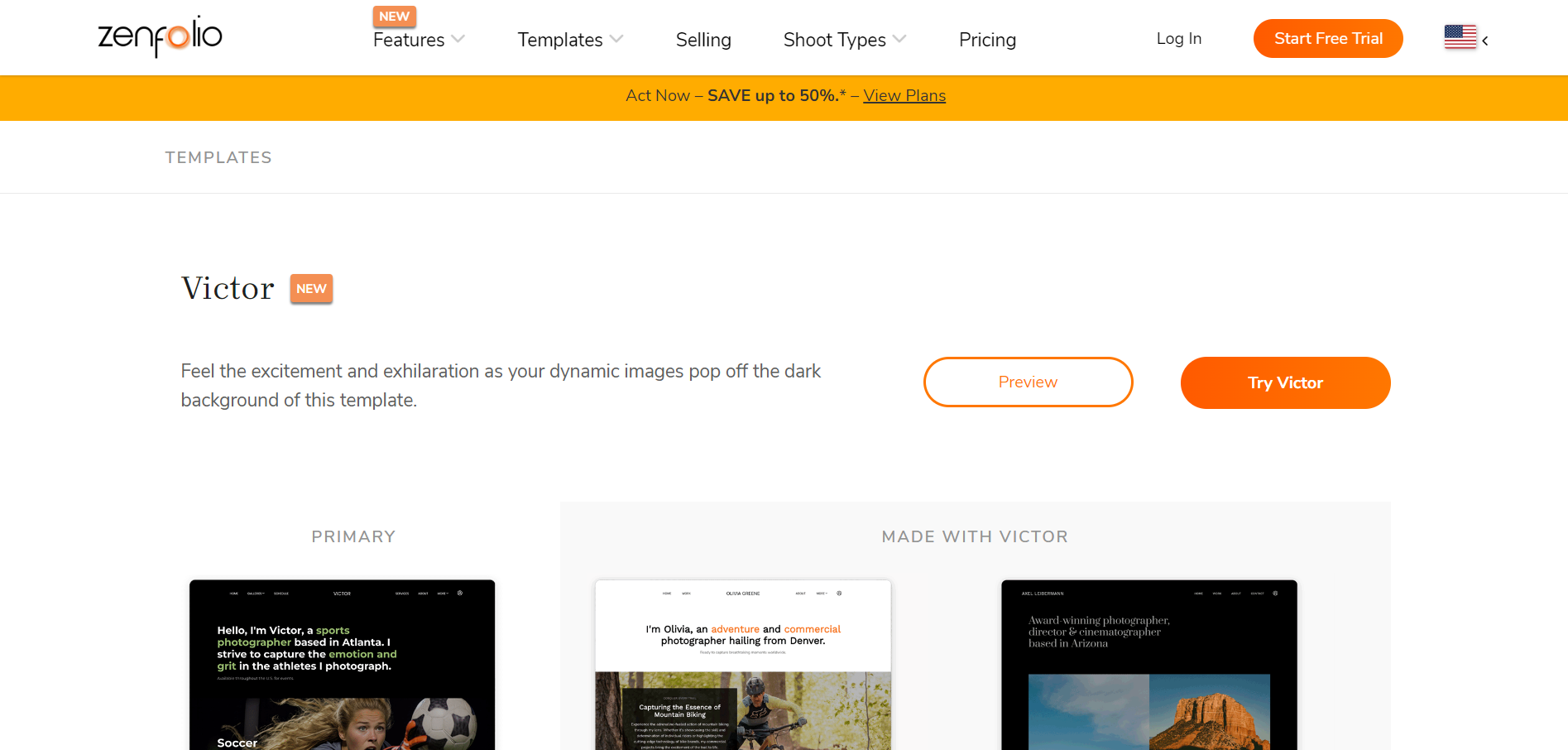
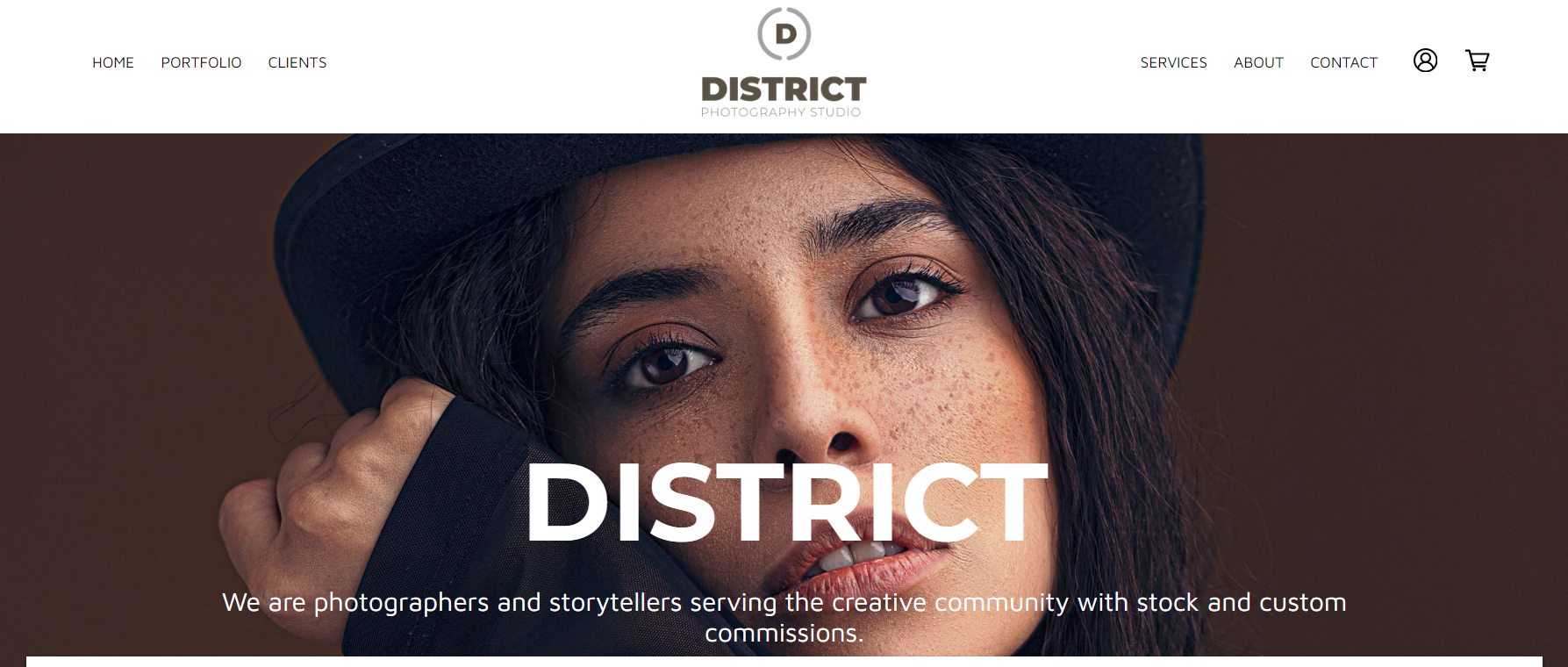
Compared to Zenfolio, Jimdo offers a diverse range of templates suitable for various industries and user preferences, with options to preview and select templates easily. The platform allows flexibility in changing templates for existing websites and also provides a “Blank Template” for custom designs, catering to both beginners and advanced users.
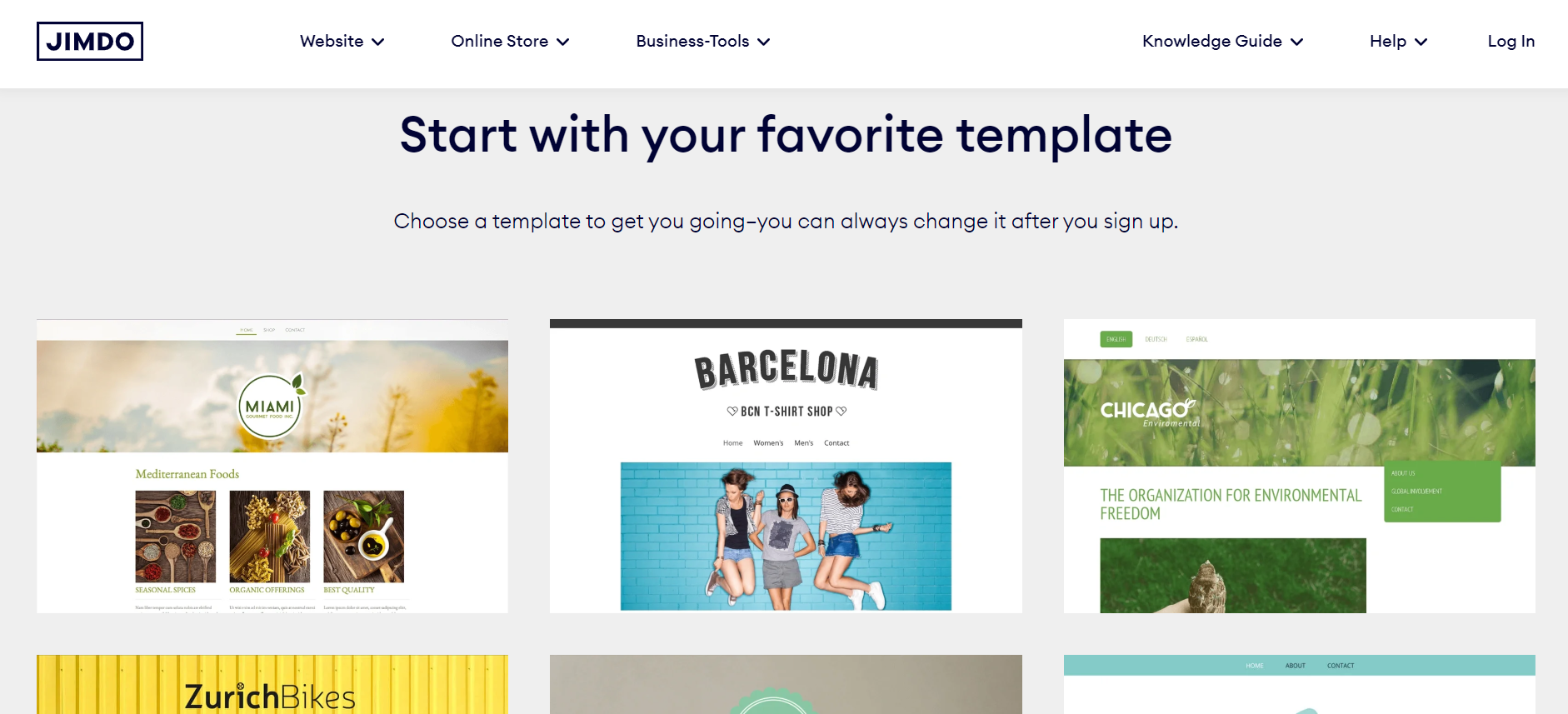

Get a head start on website creation with AI
Create a custom website tailored to your business needs 10X faster with 10Web AI Website Builder!
Ease of use
Ease of useReflects the platform’s overall user-friendliness.Score
Components:
- Learning curve (40%): Quickness and ease of getting started.
- Interface design (30%): Simplicity and intuitiveness of layout.
- User guidance (20%): Quality of tutorials and support.
- Flexibility (10%): Adaptability to various user skills.
 6.3
6.3
 8.0
8.0
🏆 Winner: Jimdo
. Scoring a solid 8.0, Jimdo stands out for its user-friendly interface, making it exceptionally easy for beginners to create and manage their websites. Zenfolio, with a score of 6.3, offers a robust platform but with a steeper learning curve, especially for those new to web design. If ease of use is a priority, Jimdo is the clear winner in this category.
Learning Resources
🏆 Winner: Jimdo
. While both platforms offer learning resources, Jimdo goes a step further with its user-friendly learning resources and tools that cater to both beginners and those with some experience in website design. Zenfolio’s learning resources are somewhat limited and users have expressed a desire for more comprehensive learning resources.
For ecommerce
EcommerceMeasures the platform’s effectiveness in supporting online business activities.Score Components:
- Ecommerce themes and templates (20%): Variety and design of templates.
- Product management (25%): Ease of managing and organizing products.
- Payment options (25%): Variety and convenience of payment methods.
- Ecommerce features (20%): Features for managing an ecommerce store.
- Integration (10%): Compatibility with external e-commerce tools and services.
 6.3
6.3
 7.0
7.0
Zenfolio and Jimdo both offer ecommerce capabilities, but they cater to different user needs. Zenfolio is designed specifically for photographers and visual artists, offering integrated ecommerce capabilities for selling prints, digital downloads, and other products. Jimdo, on the other hand, is designed for a wide range of users, including small businesses and ecommerce entrepreneurs, and provides built-in ecommerce features.

|

|
|
|---|---|---|
|
Ecommerce themes and templates |
7.0 |
6.5 |
|
Product page customization |
7.2 |
6.8 |
|
Payment processing and commissions |
6.5 |
7.5 |
|
POS capabilities |
3.0 |
5.0 |
|
Payment gateways |
6.8 |
7.0 |
|
Product numbers |
5.0 |
6.0 |
|
Additional ecommerce features |
6.5 |
6.5 |
Zenfolio ecommerce features:
- Multiple Currency Support
- Discount Coupons
- Order management
- Gift Certificates
- Tax management
Jimdo ecommerce features:
- Product details and variations
- Inventory tracking
- No transaction fees
- Discount codes and promotions
- Email marketing
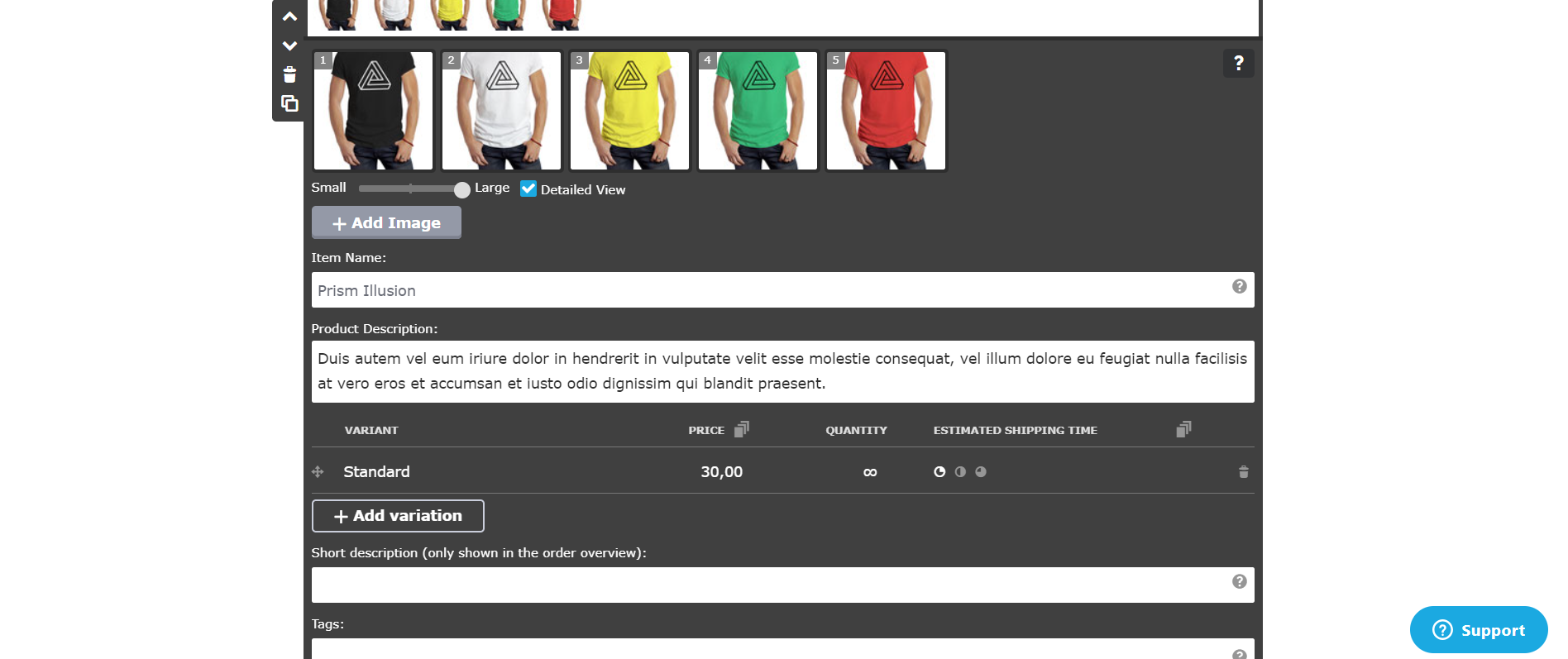
Ecommerce themes & templates
Zenfolio provides customizable website templates with integrated e-commerce features for photographers, designed to showcase and sell their work across various genres. These templates include essential online selling tools such as secure payment options, product management, and marketing integrations. Jimdo’s ecommerce templates offer a diverse range of pre-designed themes, ensuring a mobile-friendly and smooth shopping experience. The drag-and-drop interface allows for easy customization of colors, fonts, and layouts, while templates focus on showcasing products with dedicated sections for images, descriptions, and clear calls to action.
Product page customization
Zenfolio allows users to detail their product pages with descriptions, images, and options such as size or color. This allows for each product page to be adjusted to clearly display its unique attributes. Placing products in specific galleries or categories helps organize the site and improve navigation. The platform also supports customization in pricing and shipping settings, allowing sellers to cater to various needs effectively. Jimdo, on the other hand, allows users to edit text, add images, adjust layouts, and modify design elements like colors and fonts to showcase their products effectively. This customization enhances the visual appeal and functionality of your online store, aiming to improve user experience and boost sales.
Payment processing
Zenfolio supports Stripe and PayPal for payment processing, integrating them seamlessly into its platform. The platform charges a commerce fee of 7% per order (excluding tax and shipping) and a payment processing fee for transactions through Stripe or PayPal. Jimdo facilitates payment processing through various popular gateways like PayPal, Stripe, Mollie, and more, depending on your location and plan. While Jimdo doesn’t impose transaction fees, individual payment gateways may have their own charges, typically ranging from 2% to 3% of the transaction amount plus a fixed fee.
Website Editors
Website EditorsEvaluates the platforms’ website building and editing capabilities.Score Components:
- Customization tools (40%): Range and power of editing features.
- Editor usability (30%): User experience within the editor.
- Design flexibility (20%): Freedom in layout and design changes.
- Update and maintenance ease (10%): Simplicity of updating and maintaining the site.
 7.6
7.6
 7.8
7.8
🏆
Winner: Jimdo
. Jimdo, with a score of 7.8, offers two main modes: Jimdo Dolphin and Jimdo Creator. Dolphin, an AI-driven tool, is ideal for beginners and creates websites based on user responses to a series of questions, streamlining the web design process. On the other hand, Jimdo Creator provides a more traditional website building experience with greater customization options, including a drag-and-drop editor and HTML widgets, catering to users seeking more control over their site’s design.
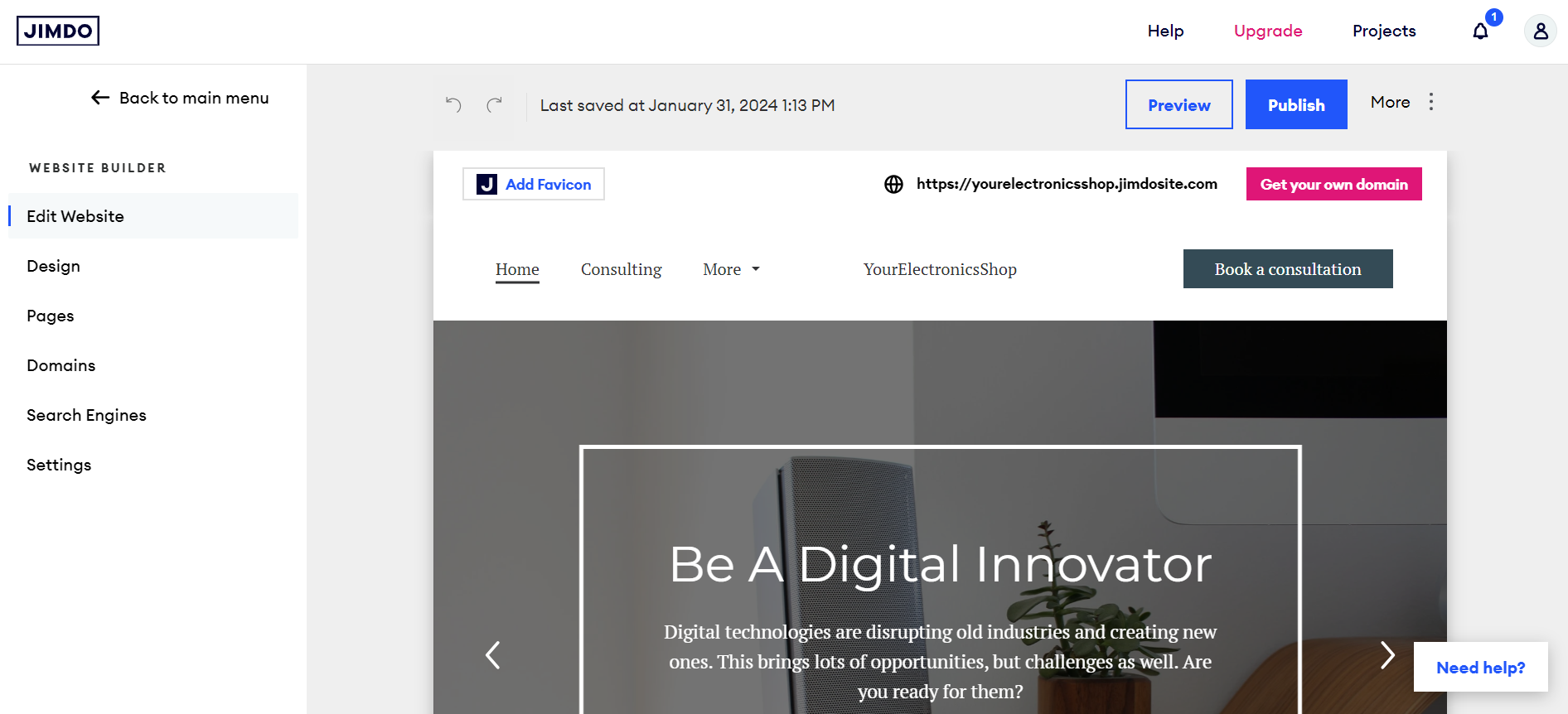
Zenfolio’s editor, scoring 7.6, is tailored for photographers, featuring drag-and-drop customization, a wide array of templates, and a powerful Custom Layout block for personalized designs. Its integrated eCommerce capabilities enable selling both digital and physical photography products, supported by comprehensive security features for protecting photographers’ work. However, it does have limitations in terms of customization options and photo storage capacity, which could be a drawback for some users.
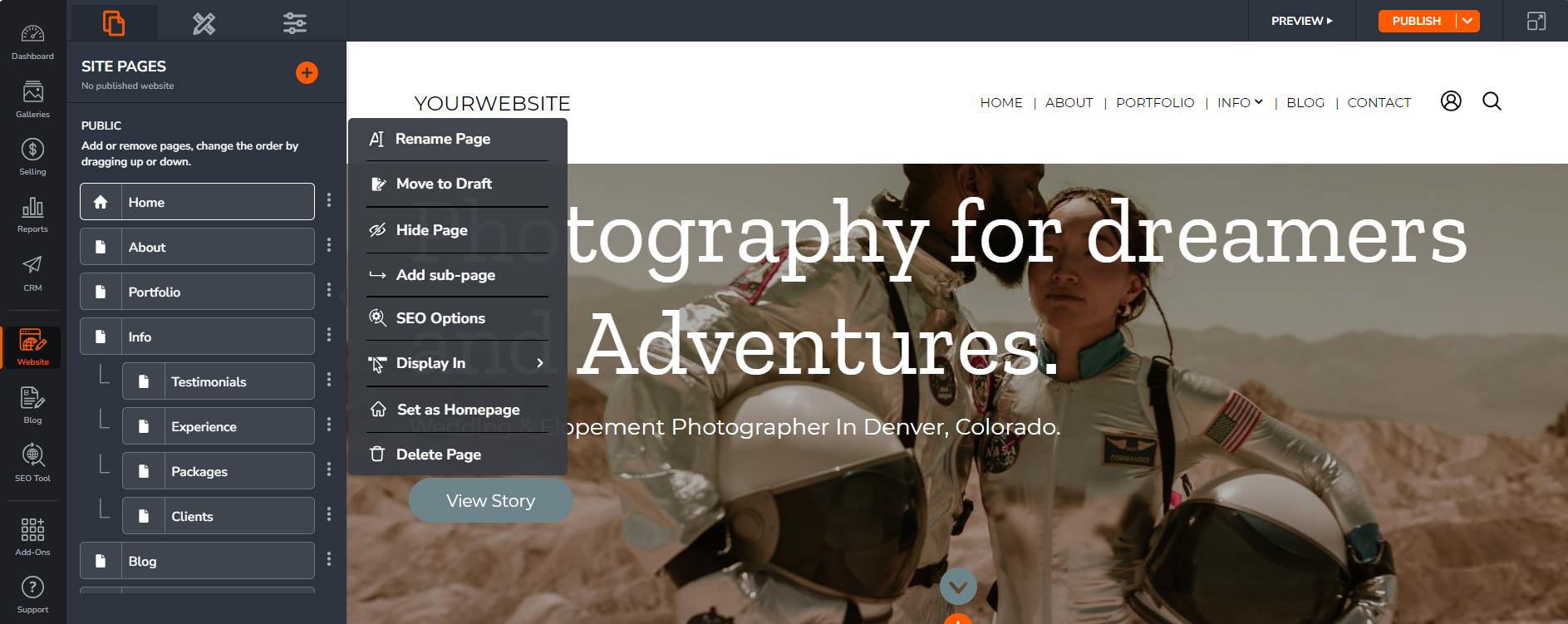
Mobile editor/app
 8.5
8.5
 8.0
8.0
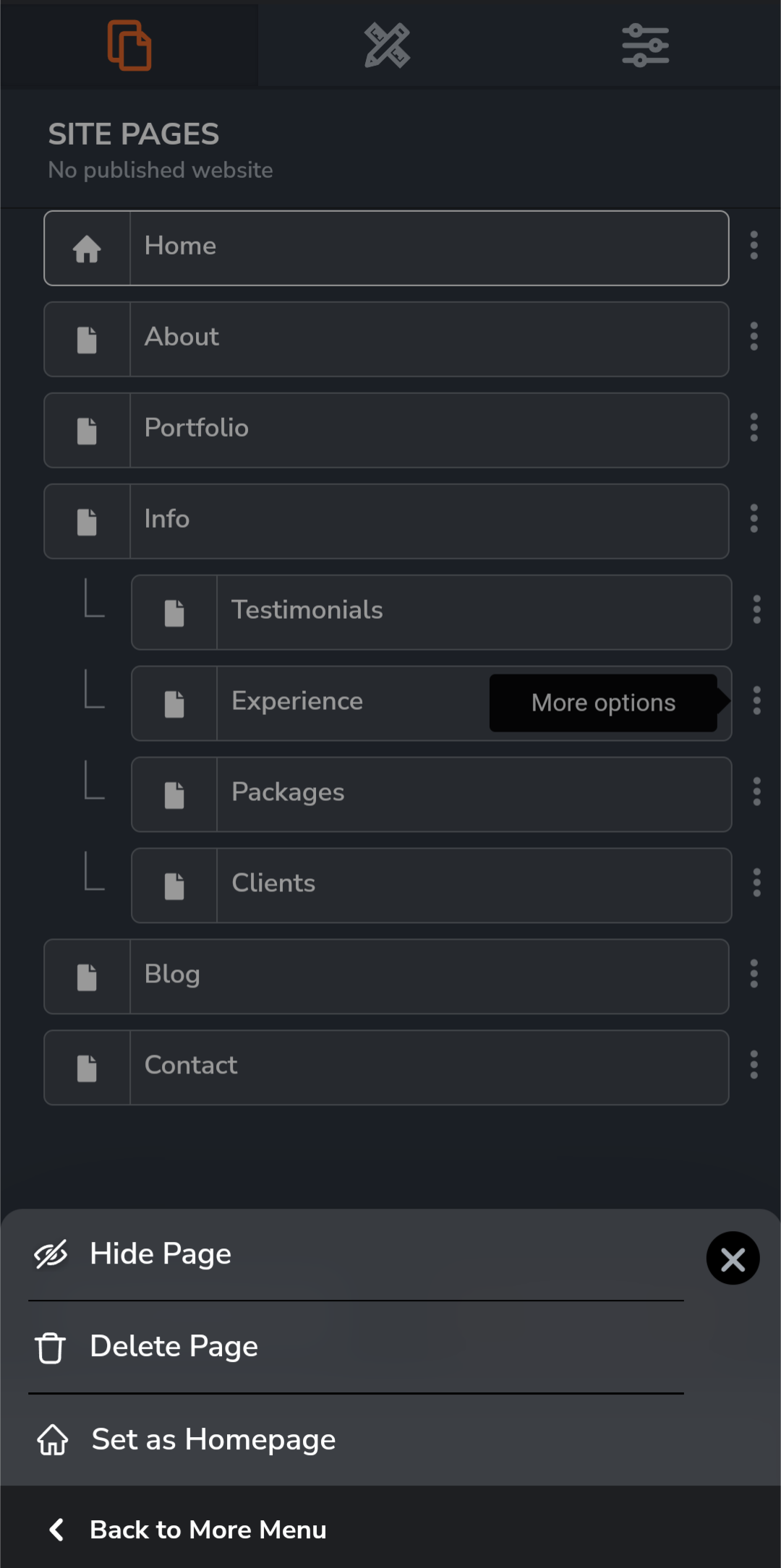
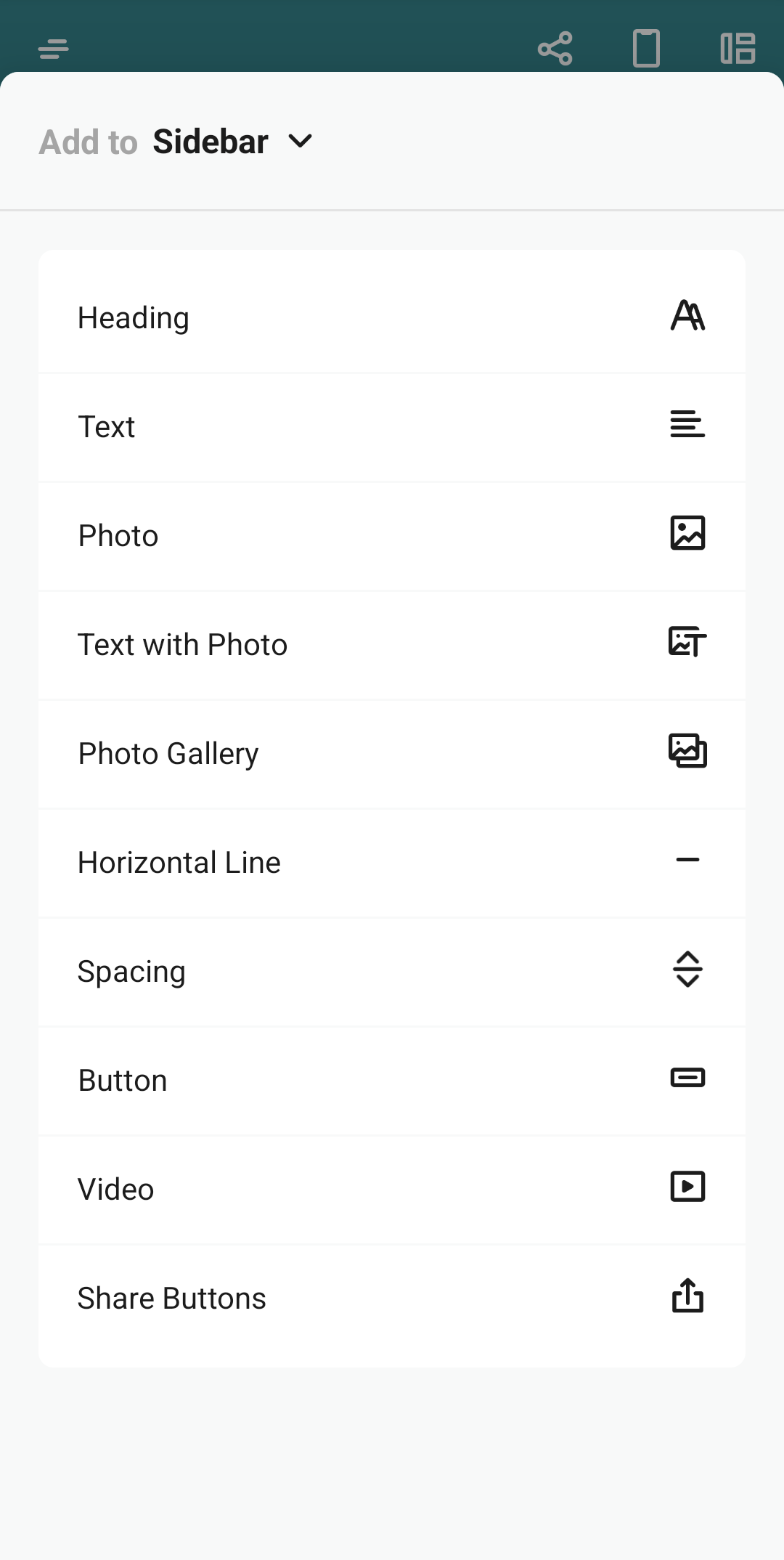
🏆
Winner: Depends on your needs
. Both Zenfolio and Jimdo offer mobile apps for managing your website, but they cater to different needs. Zenfolio’s mobile app is designed specifically for photographers and visual artists, offering features for managing galleries, handling sales-related tasks, and showcasing photos. It also supports uploading and editing photos, as well as accessing various tools for reports, CRM, bookings, and blog management. However, some features may still necessitate desktop use for full functionality.
Jimdo, on the other hand, offers a more general-purpose mobile app, allowing users to create and manage their websites directly from their smartphones or tablets. This app provides a convenient way to edit and update your site on the go, including adding or modifying content, adjusting design elements, and managing your online store.
In summary, Zenfolio may be a better choice for photographers and visual artists who need specialized features, while Jimdo may be more suitable for general website management and editing.
Product testing options
Product Testing OptionsAssesses the options for trying out platform features before commitment.Score Components:
- Trial quality (40%): Extent and usefulness of the trial or free version.
- Feature accessibility (30%): How many features are available to test.
- Trial duration (20%): Length of the trial period.
- Ease of transition (10%): Smoothness of moving from trial to paid plans.
 8.4
8.4
 6.4
6.4
Overall Result
:
Zenfolio Wins
. Zenfolio scores 8.4 in product testing options, offering a 14-day free trial with the possibility to test premium features and a 30-day money-back guarantee. Jimdo, scoring 6.4, offers a free version with basic features and a 14-day money-back guarantee for all paid plans.

|

|
|
|---|---|---|
|
Free Plan |
No (14-day free trial) |
Yes |
|
Trial Duration |
14 days | No, however they have 14 days money back guarantee |
|
Testing Premium Features |
During the free trial |
Basic features with the free plan, advanced options with paid plans |
|
Money Back Guarantee |
30-day money back guarantee |
14-day money-back guarantee for all paid plans |
Price
PriceLooks at the cost-effectiveness and value for money of each platform.Score Components:
- Plan value (40%): What each pricing tier offers.
- Transparency and clarity (30%): Clearness of pricing structures.
- Flexibility of plans (20%): Range of options to suit different budgets.
- Hidden costs (10%): Additional expenses not included in the plan.
 8.2
8.2
 7.5
7.5
Zenfolio and Jimdo offer a range of pricing options, with Zenfolio focusing more on professional photographers and visual artists, while Jimdo caters to a wider range of users including personal, small business, and ecommerce.

|

|
|
|---|---|---|
|
Free |
No offering at this amount. |
Play ($0/month): Basic, entry-level plan offering limited features, ideal for testing Jimdo’s capabilities. Includes 500MB storage and up to 5 website pages. Limited ecommerce functionality. |
|
$0-$10 |
Portfolio ($9.00/month): Basic entry-level with 15 GB photo storage, HD video, single-page website. Value for price: 6.0 |
Start ($9/month): Aimed at small projects or businesses just starting out. Provides 5GB of storage and up to 10 website pages, along with SEO tools for online visibility. Not directly focused on ecommerce. Value for price: 6.0 |
|
$10-$15 |
No offering at this amount. |
Grow ($15/month): Targets growing businesses needing more space and features. Offers more flexibility but still lacks dedicated ecommerce capabilities compared to the Business plan. Provides 20GB bandwidth with up to 50 website pages. Value for price: 7.0 Basic ($15/month): Up to five forwarding email addresses, up to 10 website pages, convenient payment methods. Value for price: 6.5 |
|
$15-$25 |
PortfolioPlus ($23.00/month): Balanced features with 150 GB photo storage, HD video, single-page website. Value for price: 7.5 |
Business ($19/month): Designed for small to medium-sized online stores, offering ecommerce features without transaction fees. Includes selling on Facebook and Instagram, and various payment options. And up to 50 website pages. Value for price: 8.0 |
|
$30+ |
ProSuite ($40.00/month): Extensive features for photo and video, multi-page websites, blog, templates, and more. Value for price: 9.0 |
VIP ($39/month): Provides comprehensive features for large or expanding online stores, including unlimited storage and priority support and unlimited website pages. Includes professional design review and no transaction fees. Value for Price: 9.0 Unlimited ($39/month): Offers unlimited bandwidth and storage, up to 20 forwarding email addresses and unlimited website pages. Includes priority support and professional design reviews. Value for Price: 9.5 |
location. As a result in rare cases the prices displayed here can differ from the ones you see on their
websites.
Hosting quality
Hosting
qualityExamines the reliability and performance of the hosting solutions.Score Components:
- Uptime (40%): Consistency and reliability of website availability.
- Speed (30%): Loading times and performance.
- Bandwidth and storage (20%): Sufficiency of resources provided.
- Data centers (10%): Quality and distribution of hosting infrastructure.
 5.7
5.7
 6.7
6.7
Winner: Jimdo
. Jimdo offers a more comprehensive hosting service with shared, cloud, and managed hosting options. It also provides a 99.5% uptime, although it doesn’t offer an uptime guarantee. While Jimdo doesn’t disclose the exact locations of its data centers, it uses a distributed network of secure and reliable facilities. Zenfolio, on the other hand, offers cloud hosting with varying storage options but doesn’t disclose its uptime statistics or data center locations.

|

|
|
|---|---|---|
|
Do they offer hosting? |
Yes, with from 15GB to unlimited storage, with possibility to backup website’s content manually. | Yes, included in all of their plans. With storage from 500MB storage and 2GB bandwidth on free plan, up to unlimited storage and bandwidth on highest plan. Jimdo provides free daily backups to ensure data restoration, however users can’t backup their website manually. |
|
Data Centers: |
Zenfolio does not disclose the locations of its data centers | While Jimdo doesn’t publicly disclose the exact locations of its data centers, they utilize a distributed network of highly secure and reliable facilities spread across multiple regions. |
|
Type of hosting: |
Cloud Hosting | Shared Hosting, Cloud Hosting, Managed Hosting |
|
Uptime: |
Zenfolio website builder does disclose any information about its uptime statistics, neither the platform has uptime guarantee. | 99.5% |
|
Uptime Guarantee: |
Zenfolio website builder does disclose any information about its uptime statistics, neither the platform has uptime guarantee. | No |
Website Speed Optimization
Website Speed OptimizationEvaluates optimization of website loading timesScore Components:
- PageSpeed Score (30%): Google’s score indicating performance optimization.
- Loading Time (30%): The average time until a website is fully interactive.
- Mobile Optimization (15%): Optimization effectiveness for mobile devices.
- Resource Optimization (15%): Optimizing images, scripts, and other heavy resources.
- CDN Usage (10%): Use of CDN to enhance speed across geolocations.
 5.2
5.2
 7.6
7.6
🏆 Winner: Jimdo
Both Zenfolio and Jimdo prioritize website performance and page speed, but Jimdo has a more comprehensive approach to speed optimization, making it the winner in this category.

|

|
|
|---|---|---|
|
Focus |
Mobile responsive design |
Content Optimization, CDN, Image optimization, Caching, Mobile Responsive design |
|
Performance Tools |
Not specified |
Not specified |
|
Key Strategies |
Mobile responsive design |
Content Optimization, CDN, Image optimization, Caching, Mobile Responsive design |
|
Load Times |
Varies depending on optimization and website complexity |
Varies widely, dependent on optimization |
|
Page Speed Scores Range |
Varies depending on optimization and website complexity |
Varies; influenced by plugins, images |
|
Core Web Vitals Improvement |
Not specified |
Optimizing LCP, Enhancing FID, Improving CLS |
Jimdo’s approach to enhancing site speed includes content optimization, use of content distribution networks (CDN), image optimization, caching, and mobile responsive design. These strategies help to improve the load times and PageSpeed scores of websites built with Jimdo. In addition, Jimdo is focused on improving Core Web Vitals by optimizing Largest Contentful Paint (LCP), enhancing First Input Delay (FID), and improving Cumulative Layout Shift (CLS).
On the other hand, Zenfolio’s strategy for speed optimization is primarily focused on mobile responsive design. The load times and PageSpeed scores of Zenfolio websites vary depending on the level of optimization and the complexity of the website. However, Zenfolio does not provide any specific information on their Core Web Vitals improvements.
Get a head start on website creation with AI
Create a custom website tailored to your business needs 10X faster with 10Web AI Website Builder!
Plugins and integrations
Plugins and integrationsMeasures the range and effectiveness of additional plugins and integrations.Score Components:
- Variety of options (40%): Range of available add-ons.
- Integration smoothness (30%): Ease of integrating plugins into the site.
- Quality of plugins (20%): Functionality and reliability of the options.
- Custom integration capabilities (10%): Support for custom or third-party integrations.
 6.5
6.5
 7.4
7.4
🏆 Winner: Jimdo.
With a score of 7.4, Jimdo offers a wider range of plugins and extensions, provided by POWr and Elfsight, that cater to diverse business and marketing needs. Zenfolio, scoring 6.5, offers a focused set of plugins and integrations specifically designed for photographers. While Zenfolio’s plugins enhance its base capabilities into areas such as advanced e-commerce and marketing, improved customer experience, and enhanced social media engagement, Jimdo’s plugins offer diverse enhancements for websites, including social media integration, ecommerce features, form builders, SEO tools, visual enhancements, marketing elements, customer reviews, event management, location tools, and various other functionalities.
Marketing Features
Design FunctionalitiesRepresents how well each platform allows for creative design and customization of websites.Score Components:
- Template Variety (30%): Range and quality of design templates.
- Customization (30%): Flexibility and options for design alterations.
- User Interface (20%): Ease and intuitiveness of the design process.
- Responsiveness (10%): Adaptability to different devices and screen sizes.
- Innovation (10%): Unique design features and tools.
 6.1
6.1
 7.2
7.2
🏆
Overall Winner: Jimdo
. Jimdo stands out for its more comprehensive SEO features, blogging capabilities, and analytics tools. Zenfolio, while offering a range of marketing features, is more limited in its SEO capabilities and blogging features.

|

|
|
|---|---|---|
|
SEO Tools |
Yes, but limited |
Yes, comprehensive SEO features |
|
Email Marketing |
Yes |
Yes |
|
Blogging |
Yes, on higher plans |
Yes |
|
Social Media Integration |
Yes, sharing via Facebook, Instagram, Twitter, and Pinterest |
Yes, integration with various platforms |
|
Analytics and Reporting |
Yes, basic built-in analytics tools |
Yes, integrated analytics for website traffic |
|
Ads and Promotions |
Yes, through e-commerce capabilities |
Yes, tools for promotions and ad management |
Customer Support
Customer supportEvaluates the quality and availability of support options.Score Components:
- Response time (40%): Speed of support responses.
- Support quality (30%): Effectiveness and helpfulness of the support.
- Availability (20%): Range of support channels (phone, chat, email).
- Resource richness (10%): Quality of self-help and educational materials.
 6.7
6.7
 6.8
6.8
🏆 Winner: Jimdo
. Comparing Zenfolio vs Jimdo, Jimdo slightly edges out Zenfolio in customer support with a score of 6.8 compared to Zenfolio’s 6.7. Jimdo offers a variety of support channels, including email, a call center, and social media support, although it lacks live chat support. Their knowledge base and specific request forms provide users with ample resources to resolve issues.
Zenfolio, on the other hand, provides email support 365 days a year, LiveChat from Monday to Thursday, and phone support for Advanced plan subscribers. Their Support Center is rich with self-help resources, including articles and video tutorials. However, the limited availability of live chat and phone support may be a drawback for some users.
Overall, while both platforms offer robust support options, Jimdo’s broader range of support channels and slightly higher support score make it the winner in this category.
Security
SecurityLooks at the platforms’ security measures and data protection.Score Components:
- Data protection (40%): Safeguards for user and customer data.
- SSL and encryption (30%): Implementation of secure connections.
- Compliance (20%): Adherence to industry security standards.
- Regular updates (10%): Frequency of security updates and patches.
 8.0
8.0
 8.3
8.3
🏆
Winner: Jimdo
. Jimdo’s security measures are comprehensive, including a strong firewall, DDoS protection, HTTPS encryption for all traffic, and SSL certificates for domains. They also ensure GDPR compliance and maintain a dedicated team for legal and information security. This creates a safe environment for Jimdo users and their websites.
Although it may not offer the same level of comprehensive security measures as Jimdo, Zenfolio also emphasizes security, providing SSL encryption for all its websites and additional features like watermarking and password-protected galleries. However, it falls slightly short of Jimdo’s overall security score and comprehensive measures.
AI Capabilities
AI capabilitiesMeasures the effectiveness of AI-driven features and tools.Score Components:
- Automation efficiency (40%): Impact of AI on streamlining processes.
- Personalization (30%): AI-driven customization for users or customers.
- AI-Assisted design (20%): Role of AI in website design and functionality.
- Data analysis (10%): Use of AI in interpreting user data and analytics.
 2.4
2.4
 6.0
6.0

|

|
|
|---|---|---|
|
AI Website Builder |
|
Jimdo offers an AI website builder with a range of features |
|
AI Ecommerce Features |
Zenfolio offers AI-driven ecommerce features for photographers |
Jimdo’s AI capabilities are integrated into its ecommerce features |
|
AI Content Generation |
|
|
|
Additional AI Features |
|
Jimdo’s AI capabilities are basic and focused on website creation |
🏆 Winner: Jimdo
. Jimdo, with a score of 6.0, offers an AI website builder that simplifies the site-building process. It also integrates AI capabilities into its ecommerce features. Although its AI capabilities are basic, they are more comprehensive than Zenfolio’s, which are limited to its ecommerce features and do not include an AI website builder or content generation features.
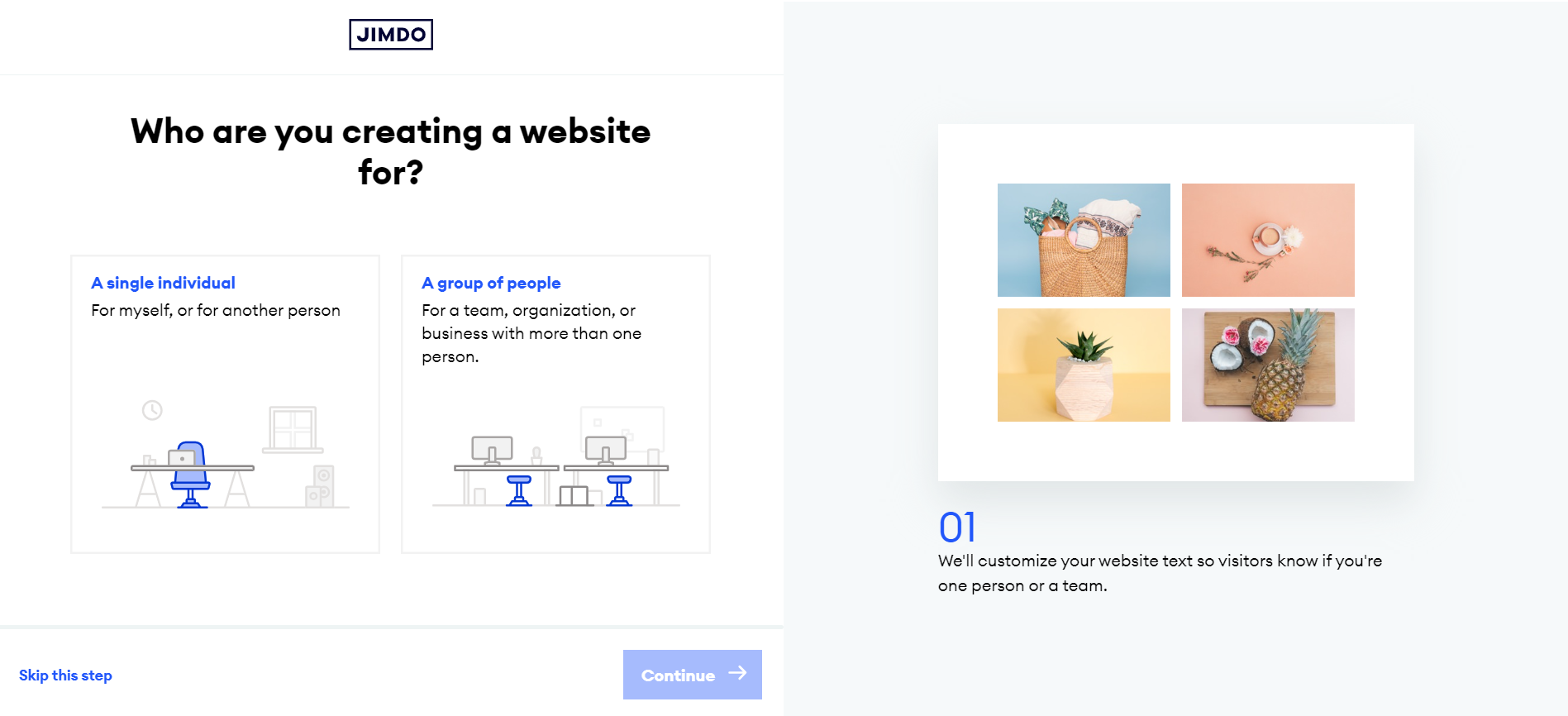
User Management
User ManagementAssesses the platforms’ capabilities in managing user roles, permissions, and accessibility.Score Components:
- Role Customization (40%): Flexibility in creating and defining user roles and
permissions. - Ease of Management (30%): User interface and tools for managing users.
- Access Control (20%): Effectiveness of access control measures for different user
levels. - Scalability (10%): Ability to manage a growing number of users efficiently.
 2.8
2.8
 5.8
5.8
🏆 Winner: Jimdo
. Zenfolio and Jimdo have different approaches to user management.
- Zenfolio only allows one user to edit and manage a website.
- Jimdo’s user management capabilities vary depending on the plan chosen. The Free, Start, and Basic Shop Plans allow website management by a single owner. The Grow Shop Plan permits two editors, including the account owner and one collaborator. The Business Plan extends collaboration to five editors, consisting of the account owner and four collaborators. The Unlimited Plan provides unlimited editors, fostering a collaborative team environment. The VIP Plan, designed for online stores, does not specify a limit on editors for websites.
There is no information available about user roles and access levels for Zenfolio and Jimdo.
Additional Features

|

|
|
|---|---|---|
|
SSL Certificate |
|
|
|
Custom Domain |
|
|
|
Free Custom Domain Included |
|
|
|
International Domains |
|
|
|
Mobile Responsive |
|
|
|
Page Speed |
|
|
|
Website Builder Mobile App |
|
|
|
Convert a Website To An App |
|
|
|
Website Analytics |
|
|
|
Multilingual Sites |
|
|
|
Multiple Users |
|
|
User Feedback
Users appreciate Zenfolio for its elegant and affordable site/portfolio designs, highlighting the platform’s suitability for photographers looking to showcase and sell their work online. The Starter plan is praised for its value, though some users express a desire to upgrade to the Pro plan for its enhanced client interaction features and customizable marketing tools. Criticisms include dissatisfaction with the platform’s handling of photo albums and a desire for more privacy and faster loading times. Overall, Zenfolio is valued for its ability to organize and share professional photographs and files, despite some navigational and performance issues.
Jimdo, a website builder platform, receives mixed reviews from users. Positive feedback highlights its ease of use, no-code editor, and quick website development for basic sites. However, criticisms include outdated design, limited templates, and concerns about pricing transparency. Some users appreciate it for simple projects, while others find it lacking for more complex websites. Common issues include restricted SEO in the free tier, support limitations, and late responses. The overall impression suggests Jimdo may suit beginners but could be less ideal for those seeking advanced features or modern designs.
The making of this blog
We followed a clear, step-by-step process to write and research this article.
FAQ
Which platform is better for photographers, Zenfolio or Jimdo?
Can I build a website without coding skills on Zenfolio and Jimdo?
Which platform offers better e-commerce features for selling online?
How do Zenfolio and Jimdo compare in terms of user-friendliness?
Which platform is more suitable for building informational and business websites?
Are there any free plans available for Zenfolio and Jimdo?
Which platform provides better customer support?
How do Zenfolio and Jimdo handle website security?










